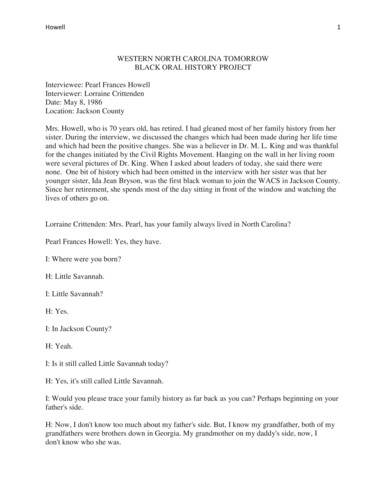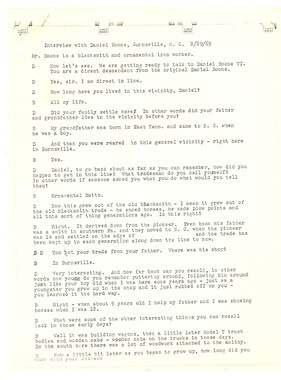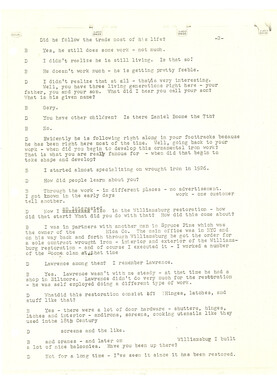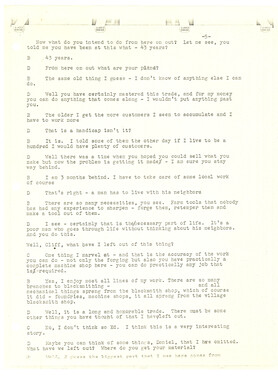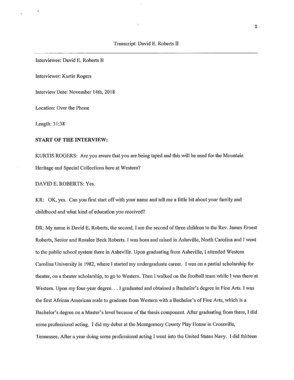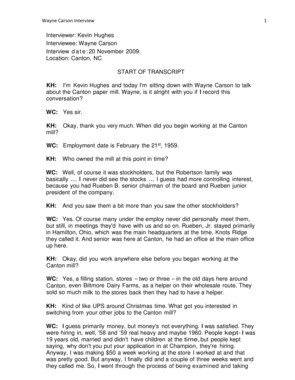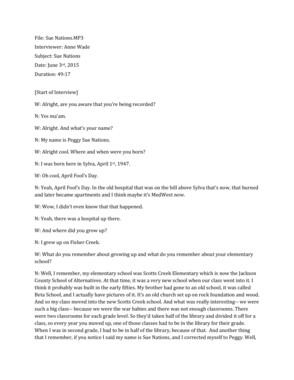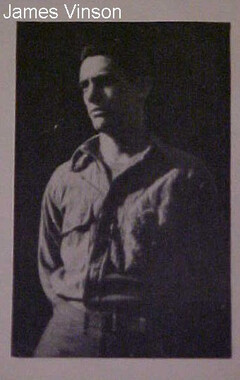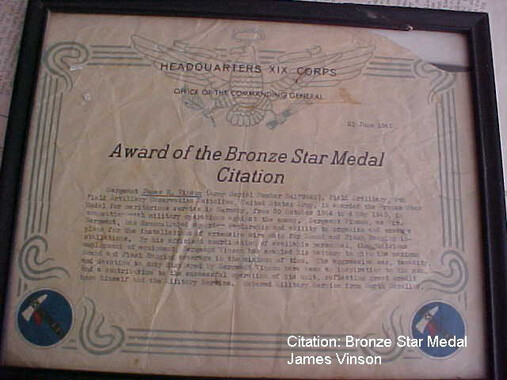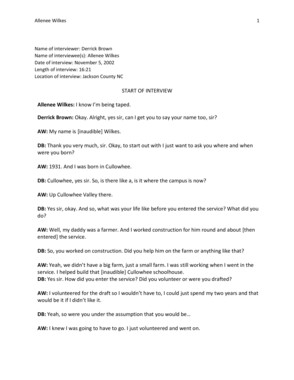Western Carolina University (20)
View all
- Canton Champion Fibre Company (2308)
- Cherokee Traditions (293)
- Civil War in Southern Appalachia (165)
- Craft Revival (1942)
- Great Smoky Mountains - A Park for America (2683)
- Highlights from Western Carolina University (430)
- Horace Kephart (941)
- Journeys Through Jackson (154)
- LGBTQIA+ Archive of Jackson County (15)
- Oral Histories of Western North Carolina (314)
- Picturing Appalachia (6679)
- Stories of Mountain Folk (413)
- Travel Western North Carolina (160)
- Western Carolina University Fine Art Museum Vitreograph Collection (129)
- Western Carolina University Herbarium (92)
- Western Carolina University: Making Memories (708)
- Western Carolina University Publications (2283)
- Western Carolina University Restricted Electronic Theses and Dissertations (146)
- Western North Carolina Regional Maps (71)
- World War II in Southern Appalachia (131)
University of North Carolina Asheville (6)
View all
- 1700s (1)
- 1860s (1)
- 1890s (1)
- 1900s (2)
- 1920s (2)
- 1930s (5)
- 1940s (12)
- 1950s (19)
- 1960s (35)
- 1970s (31)
- 1980s (16)
- 1990s (10)
- 2000s (20)
- 2010s (24)
- 2020s (4)
- 1600s (0)
- 1800s (0)
- 1810s (0)
- 1820s (0)
- 1830s (0)
- 1840s (0)
- 1850s (0)
- 1870s (0)
- 1880s (0)
- 1910s (0)
- Appalachian Region, Southern (15)
- Asheville (N.C.) (11)
- Avery County (N.C.) (1)
- Buncombe County (N.C.) (55)
- Cherokee County (N.C.) (17)
- Clay County (N.C.) (2)
- Graham County (N.C.) (15)
- Great Smoky Mountains National Park (N.C. and Tenn.) (1)
- Haywood County (N.C.) (40)
- Henderson County (N.C.) (5)
- Jackson County (N.C.) (131)
- Knox County (Tenn.) (1)
- Macon County (N.C.) (17)
- Madison County (N.C.) (4)
- McDowell County (N.C.) (1)
- Mitchell County (N.C.) (5)
- Polk County (N.C.) (3)
- Qualla Boundary (6)
- Rutherford County (N.C.) (1)
- Swain County (N.C.) (30)
- Watauga County (N.C.) (2)
- Waynesville (N.C.) (1)
- Yancey County (N.C.) (3)
- Blount County (Tenn.) (0)
- Knoxville (Tenn.) (0)
- Lake Santeetlah (N.C.) (0)
- Transylvania County (N.C.) (0)
- Interviews (314)
- Manuscripts (documents) (3)
- Personal Narratives (7)
- Photographs (4)
- Sound Recordings (308)
- Transcripts (216)
- Aerial Photographs (0)
- Aerial Views (0)
- Albums (books) (0)
- Articles (0)
- Artifacts (object Genre) (0)
- Biography (general Genre) (0)
- Cards (information Artifacts) (0)
- Clippings (information Artifacts) (0)
- Crafts (art Genres) (0)
- Depictions (visual Works) (0)
- Design Drawings (0)
- Drawings (visual Works) (0)
- Envelopes (0)
- Facsimiles (reproductions) (0)
- Fiction (general Genre) (0)
- Financial Records (0)
- Fliers (printed Matter) (0)
- Glass Plate Negatives (0)
- Guidebooks (0)
- Internegatives (0)
- Land Surveys (0)
- Letters (correspondence) (0)
- Maps (documents) (0)
- Memorandums (0)
- Minutes (administrative Records) (0)
- Negatives (photographs) (0)
- Newsletters (0)
- Newspapers (0)
- Occupation Currency (0)
- Paintings (visual Works) (0)
- Pen And Ink Drawings (0)
- Periodicals (0)
- Plans (maps) (0)
- Poetry (0)
- Portraits (0)
- Postcards (0)
- Programs (documents) (0)
- Publications (documents) (0)
- Questionnaires (0)
- Scrapbooks (0)
- Sheet Music (0)
- Slides (photographs) (0)
- Specimens (0)
- Speeches (documents) (0)
- Text Messages (0)
- Tintypes (photographs) (0)
- Video Recordings (physical Artifacts) (0)
- Vitreographs (0)
- WCU Mountain Heritage Center Oral Histories (25)
- WCU Oral History Collection - Mountain People, Mountain Lives (71)
- Western North Carolina Tomorrow Black Oral History Project (69)
- A.L. Ensley Collection (0)
- Appalachian Industrial School Records (0)
- Appalachian National Park Association Records (0)
- Axley-Meroney Collection (0)
- Bayard Wootten Photograph Collection (0)
- Bethel Rural Community Organization Collection (0)
- Blumer Collection (0)
- C.W. Slagle Collection (0)
- Canton Area Historical Museum (0)
- Carlos C. Campbell Collection (0)
- Cataloochee History Project (0)
- Cherokee Studies Collection (0)
- Daisy Dame Photograph Album (0)
- Daniel Boone VI Collection (0)
- Doris Ulmann Photograph Collection (0)
- Elizabeth H. Lasley Collection (0)
- Elizabeth Woolworth Szold Fleharty Collection (0)
- Frank Fry Collection (0)
- George Masa Collection (0)
- Gideon Laney Collection (0)
- Hazel Scarborough Collection (0)
- Hiram C. Wilburn Papers (0)
- Historic Photographs Collection (0)
- Horace Kephart Collection (0)
- Humbard Collection (0)
- Hunter and Weaver Families Collection (0)
- I. D. Blumenthal Collection (0)
- Isadora Williams Collection (0)
- Jesse Bryson Stalcup Collection (0)
- Jim Thompson Collection (0)
- John B. Battle Collection (0)
- John C. Campbell Folk School Records (0)
- John Parris Collection (0)
- Judaculla Rock project (0)
- Kelly Bennett Collection (0)
- Love Family Papers (0)
- Major Wiley Parris Civil War Letters (0)
- Map Collection (0)
- McFee-Misemer Civil War Letters (0)
- Mountain Heritage Center Collection (0)
- Norburn - Robertson - Thomson Families Collection (0)
- Pauline Hood Collection (0)
- Pre-Guild Collection (0)
- Qualla Arts and Crafts Mutual Collection (0)
- R.A. Romanes Collection (0)
- Rosser H. Taylor Collection (0)
- Samuel Robert Owens Collection (0)
- Sara Madison Collection (0)
- Sherrill Studio Photo Collection (0)
- Smoky Mountains Hiking Club Collection (0)
- Stories of Mountain Folk - Radio Programs (0)
- The Reporter, Western Carolina University (0)
- Venoy and Elizabeth Reed Collection (0)
- WCU Gender and Sexuality Oral History Project (0)
- WCU Students Newspapers Collection (0)
- William Williams Stringfield Collection (0)
- Zebulon Weaver Collection (0)
- African Americans (97)
- Artisans (5)
- Cherokee pottery (1)
- Cherokee women (1)
- College student newspapers and periodicals (4)
- Education (3)
- Floods (13)
- Folk music (3)
- Great Smoky Mountains National Park (N.C. and Tenn.) (1)
- Hunting (1)
- Mines and mineral resources (2)
- Rural electrification -- North Carolina, Western (2)
- School integration -- Southern States (2)
- Segregation -- North Carolina, Western (5)
- Slavery (5)
- Sports (2)
- Storytelling (3)
- World War, 1939-1945 (3)
- Appalachian Trail (0)
- Cherokee art (0)
- Cherokee artists -- North Carolina (0)
- Cherokee language (0)
- Church buildings (0)
- Civilian Conservation Corps (U.S.) (0)
- Dams (0)
- Dance (0)
- Forced removal, 1813-1903 (0)
- Forest conservation (0)
- Forests and forestry (0)
- Gender nonconformity (0)
- Landscape photography (0)
- Logging (0)
- Maps (0)
- North Carolina -- Maps (0)
- Paper industry (0)
- Postcards (0)
- Pottery (0)
- Railroad trains (0)
- Waterfalls -- Great Smoky Mountains (N.C. and Tenn.) (0)
- Weaving -- Appalachian Region, Southern (0)
- Wood-carving -- Appalachian Region, Southern (0)
- Sound (308)
- StillImage (4)
- Text (219)
- MovingImage (0)
Interview with Pearl Frances Howell
Item
Item’s are ‘child’ level descriptions to ‘parent’ objects, (e.g. one page of a whole book).
-
-
Howell 1 WESTERN NORTH CAROLINA TOMORROW BLACK ORAL HISTORY PROJECT Interviewee: Pearl Frances Howell Interviewer: Lorraine Crittenden Date: May 8, 1986 Location: Jackson County Mrs. Howell, who is 70 years old, has retired. I had gleaned most of her family history from her sister. During the interview, we discussed the changes which had been made during her life time and which had been the positive changes. She was a believer in Dr. M. L. King and was thankful for the changes initiated by the Civil Rights Movement. Hanging on the wall in her living room were several pictures of Dr. King. When I asked about leaders of today, she said there were none. One bit of history which had been omitted in the interview with her sister was that her younger sister, Ida Jean Bryson, was the first black woman to join the WACS in Jackson County. Since her retirement, she spends most of the day sitting in front of the window and watching the lives of others go on. Lorraine Crittenden: Mrs. Pearl, has your family always lived in North Carolina? Pearl Frances Howell: Yes, they have. I: Where were you born? H: Little Savannah. I: Little Savannah? H: Yes. I: In Jackson County? H: Yeah. I: Is it still called Little Savannah today? H: Yes, it's still called Little Savannah. I: Would you please trace your family history as far back as you can? Perhaps beginning on your father's side. H: Now, I don't know too much about my father's side. But, I know my grandfather, both of my grandfathers were brothers down in Georgia. My grandmother on my daddy's side, now, I don't know who she was. Howell 2 I: So, you never met your grandmother? H: I don't know anything about my father's mother at all. But now my grandmother on my mother's side, now, I knew all about her. She was a Wilson. I: What was her name? H: Dorothy. I: Dorothy Wilson? H: Yes, she married an Allen. I: Was she from North Carolina? H: Yes, she was raised up on Big Savannah. I: What else can you tell me about your grandmother? H: She was a slave. I: Your grandmother was a slave? H: Yes. I: Who was her owner? H: Wilsons bought her but I can't remember who her slave owners were, they bought her from. I: The master? H: The master. I: That the Wilsons bought her from? H: Yes. I: How long did she stay with the Wilsons? H: Until she was grown, I don't know how old she was or nothing like that. I: Do you think perhaps until she married your grandfather? H: Probably. Howell 3 I: What else can you tell me about your grandparents? How did they make a living? H: They were farmers. I: was this in Little Savannah? H: Yes. They raised hogs, cows and chickens. I: Now, was this just for the family's use? H: Yeah, that was just for the family's use. I: Now, since he grew most of the food, how did he get money for the things he couldn't make or buy. H: Well, he would work out for white people. I: Doing what? H: Working in fields, farming for them. I: so, while he was tending their fields, who was tending his fields? H: The children. I: The children tended the fields? When did they do this? H: They would do it in the afternoon after school. I: After school? H: Yes. I: Did the mother work outside? H: My mother worked out. She was a maid. She cleaned up and washed such as that. I: Did your grandmother work outside the home? H: No, Grandmother never did work outside. My grandfather, he worked out. He worked in Cullowhee and worked in places like that. They had an old truck coming through with thrashers and thrash the wheat. My grandfather and daddy both worked with that. I: So, they went around to the different farms, thrashing the wheat for meal. What about corn? H: Well, they raised the biggest portion in our own field, on our own property. Howell 4 I: Well, did they take the corn to the mill to make cornmeal? H: Yeah, they had to take it to a corn mill to have it ground and also the wheat at a wheat mill. They brung back water and had a big old wheel and the water run over it and they had a big bin in there that they poured the wheat in it, and it would come out. I: I see. Did you ever help them gather the wheat and corn and so forth? H: No, I have helped with the corn. I would cook collards, tied fodder, hoed corn, dug potatoes, and picked peas. I: How were these foods kept? H: Well, we had smoke houses back then. My mother canned a lot. She had a can house where she kept her cans and milk, butter and water run through it and had her trough where she set her milk in there in the jars and things. It had a door on it just like a house so nothing could get to it. I: So, the spring water ran through the trough and kept the milk and butter cold? H: Yes, and our meal and flour, well. My mother had big cans that she put it in. I: What else do you remember about your young life on the farm? H: Well, I know I milked, gathered eggs, and fed hogs. Boy! I loved to gather eggs. Raising chickens; I remember my daddy give me a little calf. The little calf's mother died and I raised him. I didn't spoil her until she got grown then she had a calf. I: Let's stop here just a minute. You said earlier that you tended the fields and the chickens and so forth after school. How long did you go to school? H: To the ninth grade. I: And this was in Sylva? H: Yeah, well, I went part of the time at River View and they moved the school from River View over here. I had to ride the bus over here. I: What age did you start school? H: I guess I was about six years old. I was six or seven. I: When you lived in Little Savannah did you walk to school? H: No, we caught the bus. We walked to River View but after they moved the school we caught the bus and rode the bus here. Howell 5 I: Since your mother didn't work outside of the home, would you say that your family was middle class or poor or what? H: Well, we were middle class. We had plenty to eat. Things to wear, a good home. I: Do you remember specific holidays that were celebrated in a special way in your family? H: Oh, well practically like it is now but they didn't have the things they have now. But we had oranges, apples and candy. We got toys and all such as that. I: Now in Little Savannah was the community mostly made up your family or were there different families? H: Different large families, white and blacks all live .... I: Together? H: Yes. I: Did you all ever play together? H: Oh, yeah, we played together and everything. We didn't have no trouble or anything. We were just almost same as one. I: So what made your father decide to come to Sylva? H: Well, my father didn't. He still lived in Webster, they call it Webster. We never, none of us come out that much. Ida Jean went in the service. My brother, Charlie, he went in service and the rest of us stayed at home after my mother died. I stayed home and raised my other sisters and brothers Carrie Sue and Geneva. Jessie, she was married. She married before my mother passed. I: And so you stayed at home and raised the younger children? H: Yes. I kept them in school. I: When did you leave home? H: Oh, I left and went to Canton and stayed with my aunt. Oh, my son was, well he was grown, and I guess well, I was way up in my twenties. I: When you left Sylva? H: Ummh. Went to Canton and stayed. I: Did you work over there? Howell 6 H: Yes. I: Can you tell me anything about the economic situation then? Are times always hard? H: No not exactly. I: Do you remember the Depression? H: Yeah, just a little. I: What do you remember about it? H: I can't remember too much about that. I: Do you remember World War I? H: No. I: II? H: Let me see. Pearl Harbor was bombed. Well, he was in service then. I: You had a brother in service in World War II? H: Yes. I: How long was he in service? H: Nine years. I: Nine years? H: Yes. I: So, was he going to make a career in the army? H: Yeah, he had planned to but I don't know why he came out. I: Was he ever injured during the war? H: No. I: No? Do you remember as many of the black men from Sylva went to War? Howell 7 H: Let me see. Hatties Bryerson's sons went; Bob and George and Dave. She had three sons to go and I don't know how many of cousin Ina Petty's went into the service in Dillsboro. I: Do you think that the living and social situation was any better for them after they had fought in the war when they came back to Sylva? H: Yeah, I do. I: Why do you say that? Were they able to better jobs? H: Yes, they really was. I: Where do most of the black men work? H: They worked at the tannery and Mead. I: Mead, those are two separate plants? H: Yes. I: Were those considered to be good jobs? H: Oh, yeah, they were good jobs. I: Now, did many of the black people own their own home? H: Yeah. Oh, yeah, the biggest portion of all the colored owned their homes and still do. I: And still do? H: Yes. I: What I asked you about the Depression, do you remember if your family ever had to go on relief during that time? H: Yeah. I can barely remember that. I: Each family was given stamps to buy sugar? H: Yeah, sugar and you know meal, and flour and stuff like that. I: Do you think that time was any harder for the black family than any other time? H: Yes, I do. Howell 8 I: Did you see any discrimination in the relief program? H: No. I: What other historical event do you remember? H: Nothing. Well it's not like it is now. We couldn't go in the front of a cafe and order our food. We had to go around to the back and go in. And we couldn't ride in the front of the buses. We had to go to the back of the bus and sit down. If we didn't, we had to stand in the back. I: When do you think this change started to change? H: When Martin Luther King brought the Civil Rights in. He's the one that started it. After he started, they give in. I: so, you think things are better now? H: Oh, yeah, much better. Now we can walk into any cafe today that we want to. Eat, ride anywhere on the bus. Go in any places we want to now. I: The black churches have always been a center part of our lives; why do you think that was so? H: The black churches are a part of our heritages. We can go there and pray and give thanks to God. I: Was the black church used only for serving God? H: No. We had to go there for everything. We didn't have anywhere else to go. I: When you say ... H: We couldn't go to these buildings like we can now and have social places like say over here in the community building. We can go over there and have anything we want to now. But back in those days we couldn't go places like that. I: So, it just wasn't the meeting place to serve the Lord. It was a meeting place for any occasion. H: Yeah, any occasion if we wanted to go there. I: What about the school? Was that an important part of the community? H: Yes, it was. That was a real important place for the kids to go to get their learning. I: Who would you say were the most respected leaders in the community? H: Well, we had to respect our preacher, our school teachers and our elders and our parents. Howell 9 I: Do you think the black family was closer then than now? H: Yes, they were. I: Why? H: Because now they can associate with anybody. The families are not close enough. I: Do you think the children have moved away to get better jobs or education and therefore home… H: The biggest portion of the parents are home alone, those that have children and those that don't have children, live alone by theirselves. I: Do you think that the members in the black community are as supportive of each other as in the olden days? H: No. I: For example, I have heard of during a time of illness in any family, that their neighbors would pitch in H: No they are not. Back then they would come and visit and help the neighbors but now they very seldom… I: When you say help them what would they do? H: Well, they cooked and clean and take care of the children. They washed and ironed but they don't do that anymore. They seem like they have pulled apart from back then. I can remember back in my grandmother's days, when we lived at Savannah, people from down here, my mother-in-law, Laura Howell, and all of those would come in and help my grandmother or my mother. When my mother would have children, our neighbors would come in and help us small children. I: Now you mentioned having children. Did women have doctors to deliver the children then? H: No, most of them were mid-wives. I: Mid-wives? H: Yes. I: Was there a hospital at that time? H: No, I don't believe there was. Howell 10 I: So, if a person was sick ... H: We had doctors. I: Would the doctor come to the house? H: Yeah, they would come to the house. My mother didn't have a doctor. None of her children were very sick except one. I: Do you remember when the first hospital was built here in Jackson County? H: Yes. It was right over on that hill above town. I: You said you remember when the hospital was built. Were the black patients on the same wing as the white patients? H: No, they weren't. They were in the basement. I: Were their accommodations the same? H: Yeah, the same. In Franklin the blacks had to go the basement. In Waynesville they had to go to the basement. In Bryson they had to go to the basement. I: Do you think they got the same treatment as the white patient? H: Yeah, in a way they did and in a way they didn't. I: In which way did they not get the same treatment. H: Well, a lot of times they need a nurse. They would be up stairs with the whites. I: Didn't you have the bells and what-not to ring? H: Yeah, they had the bells, but they didn't do no good. Now we all have one when, we ring the bell they come to any of the rooms. I: What were some of the other practices that were established then and are not practiced today? H: Well, when any blacks or anybody in the black family died why they had to keep them at homes. They called it the wake. People would come in and sit up and sing at the house. They didn't embalm them back then because we didn't have anywhere to take them. They would take these bodies to the cemeteries in wagons. I know when my grandfather died they took his body in a wagon. I: Now was this the main way of getting from one place to another? Howell 11 H: From the house to the cemetery. I: Well, did the people who attended the funeral also walk? H: Yeah, we had to walk about as far from here to town. I: What other customs do you remember? H: Well, when they started taking them to the funeral homes they put the black people's body in the room with caskets. They didn't put them out in the rooms like they do now. If you were there to view, or the family want to use the Bible, well, you'd be back in where the caskets were. I remember Aunt Zina Wells was the first one that got a casket, and the hearse when her daughter died. She went and begged Mr. Moody to let them have black maraud haul her daughter to the cemetery. I: Black what? H: Black maraud, the hearse. I: The hearse? Oh, I see. H: Called the hearse Black Maraud and he finally give in and let them go get Mary and carry her to the church and preach the funeral and brought her back by the cemetery. From that day on we've been using it. I: Oh, I see. Do you remember any customs about the school or in the school? H: Well, with PTA meetings, well, they would have cake walks and different kinds of plays the children would have and raise money like that. I: For the school? H: Yeah, for the school. I can remember back when my grandmother use to have quilts to raise money for the schools and for the churches. I: Would these quilts be raffled off or something? H: Yeah, they would be raffled off. I: Well, what did the family do on the winter evenings when it was too cold to go out and do anything? H: Well, they stayed at home. I: What did they do to entertain each other? Howell 12 H: Well, they would read their Bibles and have daily prayers and all like that. I: Did you ever play games? H: Well, yeah, we played checkers and things like that, hopscotch. When it was warm enough to get out in the yard, the children would get out and play that. I: What were some of the favorite past times? On a summer day, what did the children like to do? H: The children loved to get out in the woods and brothers and sisters gathered and make sliding boards and slide down the hill on leaves. I: Oh, they would put leaves on the board? H: Under the board like up on a mountain or hill and get on the sleds and they'd have ropes. Maybe two or three get on and get a shovel and slide way down the hill on that. Climb trees. Oh, it was fun back then. I: Sounds like it. H: The boys would get out and build play houses for them and kill little birds. They'd make us little fire places and they'd give us and cut those sticks and stick in the birds and cook them over the fire. I: So, you had a roasted bird? H: Yes. I: Did you eat it? H: Yeah. I: Was it not good? H: Yeah, they, you clean them just like you clean chicken. I: Can you remember any of the other things you use to do? H: Well, no. That's just about all I can remember. I: Do you remember the first time you saw a car? H: No, now that's one thing I can't remember. I know my uncle had one, but I can't remember, you know, when he first bought it. I remember him taking us to church in it. I: Do you remember anything else that happened in Sylva that has affected a lot of people? Howell 13 H: Yeah, I remember the flood we had. I can't remember the year it was. Most of the people in Webster lost their homes and stores. In Cullowhee, they lost stores and homes. The only way we could get from here to Sylva, we could take a car to Dillsboro. They had a bridge made up over the river and we'd have to go up a step to get up in that bridge and walk across and somebody would be on the other side there in Dillsboro to bring us down to Sylva to buy food and clothes. I: How long did it take for the people to rebuild all that was lost? H: Oh, it took some of them two or three years to build back and some it didn't take them that long. I: was there insurance at that time or did people just… H: Yeah, there was insurance back then. I: So, the houses and stores were covered? H: Yes. The biggest portion was all covered. There was one black family, Mr. Robert Davis, in Cullowhee lost his home, cabinet, chickens and everything he had. But the rest of the homes were back. Further back. I: So, they were safe? H: They were safe. I: Is there anything else that you would like to share with us that I haven't asked you? H: No, I guess not. I: Well, thank you very much.
Object
Object’s are ‘parent’ level descriptions to ‘children’ items, (e.g. a book with pages).
-
Pearl Frances Howell is interviewed by Lorraine Crittenden on May 8, 1986 as a part of the Western North Carolina Tomorrow Black Oral History Project. Howell grew up in the Little Savannah community in Webster where her grandparents were farmers. Her grandmother was a slave. She recalls farming, schooling, life before and after the Civil Rights Movement, and more.
-
